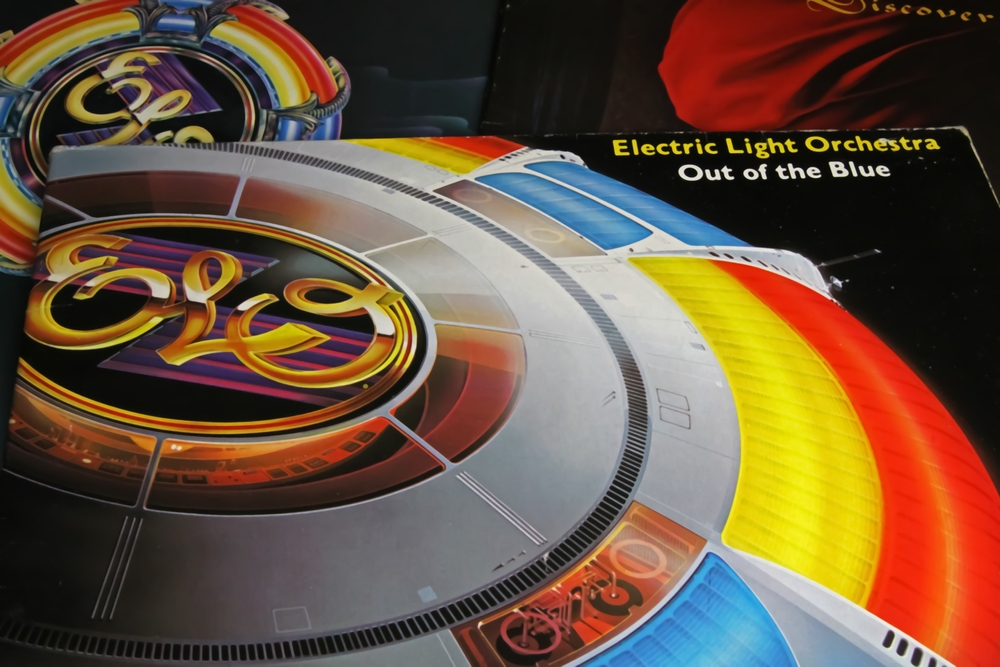
This year has already been more than a little odd. April Fool’s Day falls on a Saturday. And for many radio stations (and their owners), this is probably a blessing in disguise.
In the past, Jacobs Media sent out elaborate April Fool’s Day promotions memos, outlining the how-to’s of scores of stunts, antics, and hijinks just about any morning show could pull off.
I used to love the Pet Tax stunt. Early in the day, the show’s newscaster’s last story is about the state passing a Pet Tax affecting a majority of people in the listening audience. As of the end of the year, every house pet will be taxed by the state. The details of the story would change or be clarified during the show – some of these “bills” might apply to dogs, but exclude cats. Or perhaps the “tax” might be determined on the weight of the pet. And the “that’s not fair” debates would start immediately. Would homes with multiple pets pay one tax assessment and would there be a family discount?
As you can imagine, the phones went nuts as the audience became exasperated, distraught, and of course, very emotional. After all, it’s about two of their greatest passions – their pets and they money. At some point in the morning as the conversation accelerates, the hosts would do the inevitable “reveal” – yes, a clever morning show stunt on….(wait for it)….April Fool’s Day.
This kind of stuff feels like radio from a different era….or even planet. Because the big day is on Saturday this year, I’m sure many radio shenanigans will take place this morning. And I wish the perpetrators well. Hopefully, no one will try something so out of the box it will actually cause the station – or the community – a problem. It has happened – to clients of mine. And as my father used to say when us boys started acting up, “Somebody’s going to end up crying.”
How true that was. Errant stunts are now warned against by legal departments working for companies big and small. The industry’s lawyer – David Oxenford – issued his annual industry warning earlier this week.

As he concluded, “Have fun, but be careful how you do it.” He may as well have said what I recall ABC’s legal eagles preaching to us programmers decades ago: “When in doubt, don’t.”
But despite its appearance and my opening lines, today’s post is not about April Fool’s Day or related antics. It is about Chat AI and its many derivatives, already one of the biggest news stories of the year. And of course, the buzz of the radio broadcasting industry.
To a great degree, let’s not forget this technology has one main goal:
To fool people
And as we are learning with each passing day, Chat AI is more than capable of doing just that. Is it a real disc jockey or is it a bot? Did a human write that story or was it a robot? Is that really an ad spokesperson or is it a clever AI clone?
We are seeing this technology making leaps and bounds – by the day. As I have heard myself saying in conversations or presentations about Chat AI, today is as bad its will ever be. It is moving that fast, and becoming that good.
And full disclosure, I’ve recently made ample use of it myself. No, I haven’t allowed a bot to write a blog post (including this one). Not yet, at least. But I have used a beta app for its incredible technology that takes the actual voices of celebrities and synthesizes them to read any copy you write. It’s powerful stuff.
I used it to tee up my recent speech at the Country Radio Seminar as I employed the technology to create a greeting from “Taylor” – which I wrote. I included it in a post earlier this month.
A couple days ago, I spoke at another event, this one in Charlottesville. And I went back to the Chat bot well again. My choice of celebrities to AI synthesize this event? Some dude who calls himself The Rock who apparently lives in C-ville.:
Not bad for the price of a latté at Starbucks, right? And imagine how much better it’ll sound in a couple months.
Seth will walk you through how this beta AI site works on Monday in his “Connect the Dots” blog. It’s a good one.
It is amazing technology, along with the writing features Seth has demonstrated in his blog. But it all begs the question – what is the underlying motivation of this technology? At its core, if it’s successful, what is the goal?
To fool people, of course.
When this technology works, we cannot tell whether a bot wrote an article, is jocking afternoon drive, or greeting us at a conference.
And while it runs the gamut from mind-blowing to discomforting for most people, the squishy part is that we really don’t know – yet – how people will react. But that isn’t stopping a lot of people from jumping into the Chat AI fire. We do have some precedence here.
Take lip-synching, for example, Used by music performers for many years, especially on television, it started showing up in concerts. I remember seeing ELO on their bigger-than-life “Out of the Blue” tour back in the late 70’s – the one with the giant spaceship on stage. The band was roundly accused of not actually singing parts of songs, when instead they were using prerecorded tracks to better simulate their “string section.” No matter – the public was angry, and the band essentially stopped touring.
the late 70’s – the one with the giant spaceship on stage. The band was roundly accused of not actually singing parts of songs, when instead they were using prerecorded tracks to better simulate their “string section.” No matter – the public was angry, and the band essentially stopped touring.
The realization that late 80’s pop sensation, Milli Vanilli, was lip-synching pretty much 100% of the time was the group’s downfall, plummeting them from being Grammy winners to making them late night TV jokes. They became synonymous with lip-synching, but even more than that, giving bogus performances and trying to pull the wool over the audience’s eyes. Eventually, they were stripped of their Grammy, and performer Rob Pilatus committed suicide.
And that bring us to this new Chat AI technology. The Futuri folks were on full display in Prague this week at Radiodays Europe. And intrepid automotive analyst extraordinaire, Roger Lanctot, was in the house, watching the demo. In an article titled, “RadioGPT, Coming 2 Your Car,” Roger came away impressed by the technology – its ability to persuasively fool us – but he also raised an uncomfortable moral question or two:
“It is easy to see the human replacement proposition on display. It is more difficult to appreciate how the technology might be put to work to enhance the human managed presentation. Even harder to apprehend and anticipate is whether RadioGPT would pass the Touring test with listeners – would listeners know when they were listening to or talking to a robot? Did they need to know? Would they want to know? Would they resent the experience? Or maybe this is something more personalized for a smart speaker?
“It’s hard to say how audiences would react to an automated radio host given the fact that much of what is already being broadcast appears to be recorded or programmed. Has this line already been crossed and RadioGPT is just the ultimate manifestation of inevitable radio automation as advertising revenues decline and stations struggle to survive?”
The cart – autonomous – of course, is well in front of the lowly horse with this technology. While the radio industry is in a frenzy over this technology – loving it or hating on it – none of us can answer most of Roger’s questions.
Does the audience care about being fooled? Will they even perceive it that way? And if the technology actually makes for a smoother, more well-rounded performance, isn’t that what it’s all about?
We should know the answers to Roger’s questions – and others – before rushing headlong into redesigning our stations, our dayparts, our commercials, and most other content.
Some may push back at this notion, but decision-making with little or no audience input is usually a recipe for trouble. And it’s not that hard to find out.
To address the idea that if the technology is so good, they will never figure out they’re listening to the product of an algorithm, I’d come back with the reality the truth almost always comes out….somehow.
There could likely be more disgruntled members of the air staff community who may get passed over by this technology who will be more than happy to “tell all.” And with the social media tools the audience has mastered, our secrets won’t remain secrets for long.
 Can radio fool the public into accepting bots as DJs? Will we start referring to “them” as CJs – Chat Jocks (I’m copywriting it, so don’t even try!)?
Can radio fool the public into accepting bots as DJs? Will we start referring to “them” as CJs – Chat Jocks (I’m copywriting it, so don’t even try!)?
One of the reasons our clients did not get the April Fool’s memo this year is my belief the public has been fooled enough these past several years. When the reality one sees and hears is questioned for its veracity, and “Fake News” is part of the lexicon, do we really want to be fooled again?
I don’t have the answers…yet. But neither does anyone else trying to sell you a technology that is so powerfully potent and very much unknown.
You may have seen that earlier this week, Elon Musk and several other AI experts called for a six-month moratorium – or “pause” – on this technology – generative AI. It was published Wednesday in petition form, trying to encourage Open AI (the folks who brought us ChatGPT and now GPT-4) to pump the brakes.
You can read the petition – now signed up more than 1,000 tech experts – here. I pulled out this quote:
“Should we let machines flood our information channels with propaganda and untruth? Should we automate away all the jobs, including the fulfilling ones? Should we develop nonhuman minds that might eventually outnumber, outsmart, obsolete and replace us? Should we risk loss of control of our civilization? Such decisions must not be delegated to unelected tech leaders. Powerful AI systems should be developed only once we are confident that their effects will be positive and their risks will be manageable. This confidence must be well justified and increase with the magnitude of a system’s potential effects.”
While Roger Lanctot may be looking for automakers to experiment with this technology to make their dashboard more interactive and iterative with drivers, the radio industry is already moving beyond the head-scratching phase, and now dreaming up all sorts of applications, and drawing up commensurate budget reforecasts that show the projected financial benefits from a shiny new battalion of CJ’s – that don’t need health care, PTO, or aircheck sessions.
(Imagine never having to again say, “One thought per break” or “Where was my promo?”)
There is no one who welcomes technology and innovation more than me. Less than 90 days ago, we returned from CES, excited about how technology can shape our futures. But a technology that is predicated on using AI to fool our listening audience requires thought, consideration, and research.
A wise philosopher once summed up what it means to be fooled. And it isn’t pretty.
Something like that, yes.
So, Happy April Fool’s Day tomorrow. And be mindful of this:
“A fool and his radio station may soon be parted.”
- What To Do If Your Radio Station Goes Through A Midlife Crisis - April 25, 2025
- A 2020 Lesson?It Could All Be Gone In A Flash - April 24, 2025
- How AI Can Give Radio Personalities More…PERSONALITY - April 23, 2025




Voice tracking has been “fooling” listeners for years. Most people realize that other than shows that feed off immediate listener feedback, that they’re prerecorded. Though convenient for the host (not being tied down to set time) and a cost savings for owners. Unfortunately, there’s a generation of listeners who have grown up when radio was mostly live and local, and when the new reality set in, so did listener apathy.
Exactly right. Anyone in radio who isn’t actually adding human (wetware) value to the function is inviting replacement by a bot (software). It’s that simple, and their days are numbered.
If a radio station’s quality can be easily cloned by a bot, it wasn’t that good to begin with. The Futuri people make the point that broadcasters have conceded nights, overnights, and weekend for years. Their bots are better than seques and production in between songs. Shame on us.
I don’t even think the last couple of generations even consciously think “the DJ is in a little booth downtown, sipping a latte and playing music”. They aren’t even watching live TV.
According to Radiolocator KGPT is not in use. You could have Bot Jocks or….wait, never mind.
Going from vinyl to carts; carts to CDs; CDs to hard drive music..the listener didn’t hear a difference. Then when voice tracking started-it got a bit convoluted. Not because of the technology but the way it’s used.
If I create a “bit” for my radio show and AI makes that bit work better, doesn’t everyone win? There was big concern that “real” actors would be eliminated by CGI. We know, that after 30 some-odd years that CGI has enhanced (to some degree) the movie-going experience. Smart radio people will, we hope, find a way to use AI and CGI and whatever acronym is created after that to create a more entertaining product. We learned early on that a rabbit (named “Bugs) can’t really talk but I would spend many days glued to the tube to watch him fighting Elmer Fudd.
So – is it entertaining? Or “fooling”? I would opt that the entertaining “trumps” (sorry) the latter.
See my response to John Covell. I would love to see broadcasters use AI to make radio sound better. But history strongly suggests they won’t.
Just today I saw a TV story about more nefarious uses for AI audio…..tricking a family into thinking their child or grandchild is in trouble, has been kidnapped, etc etc and asking for money, using that child’s own voice. It was demonstrated by the AI concocting a phone call to a colleague, telling her she had forgotten her key card to the station. The colleague bought it. Imagine when it’s an elderly relative getting scammed by the AI voice of someone she knows.
I do find it all fascinating, I”ve been having ChatGPT help me with some market research and business planning. I want to teach it to learn the writing style of CKLW 20-20 News and apply it to current news, strictly for my own amusement.
The RadioGPT sounds very realistic and may beat voice-tracking. It can “check the wire” for sports scores and weather updates (home team’s down at halftime). We’ll see where that goes.
I think the evil use of AI is why Musk (of all people) and other technocrats are asking for a 6-month “pause” on this technology. Good luck with that.
Heaven forbid bots should ever run radio! Tech in radio has always been about laziness, controlling the output and helping the bottom line. I cant see why this would change now
But any millionaires wanting to pay me to build some old school radio to challenge it, apply within https://soundcloud.com/retrosoundradio
Ian, when technology becomes a crutch, an easy way out, or a substitute for creativity, we’re screwed. I hope those old school talents are still in demand.
Add a low cost of entry to online radio in the UK and we are already screwed, I hope to find a niche of good radio to listen to now, let alone get behind
And so much repitition of syndicated content, or very similar, in what is, relatively speaking, a small country
Thanks, Ian.